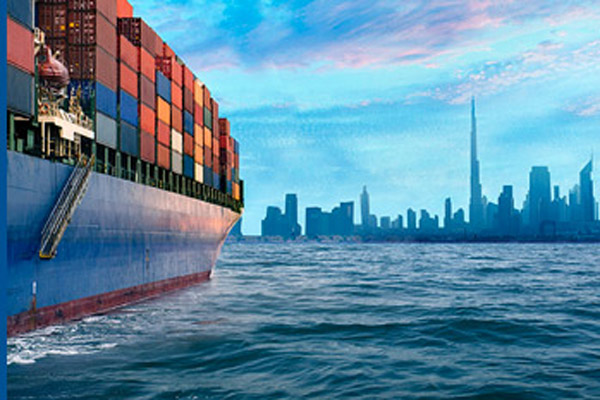In a groundbreaking move at COP 28, the CEOs of the world's leading shipping companies came together issuing an urgent call for rapid decarbonization in maritime transport.
This unprecedented unity signals a pivotal shift in the industry, long criticized for its substantial carbon footprint, said experts.
As global temperatures soar, triggering increasingly catastrophic events, the urgent need for the shipping industry – responsible for 2-3% of global greenhouse gas emissions – to meet the IMO’s ambitious 2030, 2040, and 2050 targets is glaringly evident. The path forward is clear – a swift transition from fossil fuels to green alternatives, according to a report by Shipping and Freight Resource.
These CEOs are not just paying lip service to environmental concerns; they are at the vanguard of deploying lower-emission ships, aligning with the IMO’s reduction objectives, it added.
Their joint declaration proposes four regulatory cornerstones:
*A deadline for the construction of new vessels solely powered by fossil fuels, coupled with a clear timeline for GHG Intensity Standards to boost investment confidence.
*An effective GHG pricing mechanism to level the playing field between green and black fuels during the transition, minimizing inflationary effects and incentivizing deeper emission reductions.
*A vessel pooling option for GHG compliance, promoting investments with the highest GHG reduction impact.
*A lifecycle GHG regulatory approach to align investments with climate goals and prevent stranded assets.
Such a holistic approach isn’t just about adhering to environmental standards; it’s a strategic business move. Vincent Clerc of AP Moller – Maersk emphasized the necessity of regulatory conditions that maximize emission reductions per invested dollar.
Rodolphe Saadé of CMA CGM Group sees this as a shared journey towards a sustainable future, not a competitive battleground while Rolf Habben Jansen of Hapag-Lloyd, Soren Toft of MSC, and Lasse Kristoffersen of Wallenius Wilhelmsen echo this sentiment, highlighting the industry’s collective responsibility and the critical role of a global regulatory framework in achieving net-zero emissions.
The shipping industry’s commitment to a green future is commendable, but it cannot operate in a vacuum. To truly revolutionize maritime transport, a concerted effort from all stakeholders, including governments and energy providers, is vital, stated Shipping and Freight Resource.
This coalition has set the stage for a transformative journey. Now, it’s up to the rest of the world to join in and ensure that this voyage leads to a sustainable and prosperous future for all, it added.
Lauding the move, Clerc said AP Moller – Maersk is all for acceleration of the green transition in shipping and logistics and a crucial next step in this direction will be introduction of regulatory conditions which ensure that we create the most greenhouse gas emission reductions per invested dollar.
In his comments, Saadé said: "This new commitment is fully in line with the CMA CGM Group’s ambition to be Net Zero by 2050. We have already invested close to $15 billion in decarbonising our fleet, which will enable us to have almost 120 vessels capable of being powered by decarbonized fuels by 2028."
Jansen said: "Our collective responsibility for a sustainable future and clean practices is paramount. At Hapag-Lloyd, we reaffirm our commitment to advance the decarbonization of the maritime industry and strive to be at the forefront of the energy transition. We believe that a regulatory framework and clear targets are crucial to accelerating the introduction of alternative fuels and reducing our carbon footprint."
Toft pointed out that shipping was at the forefront of technological innovation when it comes to decarbonization.
"The support of governments across the world will be an essential element to reach our common goal and among those efforts we want to see an end to delivery of ships that can only run on fossil fuels," he noted.
Kristoffersen said: "At Wallenius Wilhelmsen we have decided to be a shaper of the journey to net-zero and focus our investments in supporting this ambition. Our customers want to partner with us on the voyage."
According to experts, the call from these big shipping groups for deeper collaboration with IMO regulators underlines a commitment to significant policy measures, essential for fostering the investment in maritime and ancillary industries critical for effective decarbonization.































